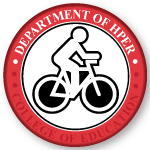Author ORCID Identifier
Document Type
Article
Publication Date
11-30-2015
Publication Title
Journal of Life Science
Volume
25
Issue
11
First Page
1324
Last Page
1330
Abstract
The present study was performed to analyze and review the physical and immune responses to overtraining syndrome in humans. Overreaching refers to the initial phage of overtraining syndrome and has been known as a physical fatigue which is mainly from metabolic imbalance. It has been known that overtraining also results in a loss of adaptability which may lead to an attenuation of exercise performance, sleeping disorder, central fatigue, neurohormonal changes, difficulty recovery to physical stress, and immunological changes. Additionally, overtraining syndrome is characterized by persistent fatigue, poor performance in sport due to the prolonged and strenuous physical training. Also, previous studies reported that endurance athletes experienced a high incidence of URTI during intense training and the post training. And also, high-performance athletes reported that suppression of cell mediated and anti-body mediated immune function. NK cell numbers were also reduced in the period of overtraining syndrome. Major components of prevention and treatment for the overtraining syndrome are screening, education, and detraining. Furthermore, the combination of these prevention and treatment strategies will be much helpful. Therefore, the current review will be helpful for athletes and individuals who are at the risk of overtraining syndrome.
Recommended Citation
Park, Song-young; Kwak, Yi Sub; and Choi, Seung-Jun, "The Clinical Evaluation between Overtraining Syndrome and Exercise-related Immunity" (2015). Health and Kinesiology Faculty Publications. 88.
https://digitalcommons.unomaha.edu/hperfacpub/88
Creative Commons License

This work is licensed under a Creative Commons Attribution-Noncommercial 4.0 License


Comments
This is an open access article licensed under Creative Commons Attribution NonCommerical license
DOI: https://doi.org/10.5352/JLS.2015.25.11.1324